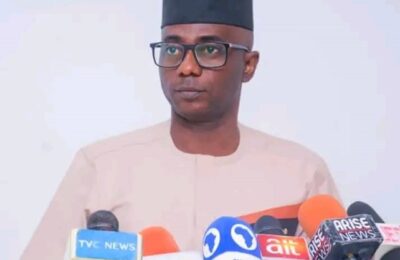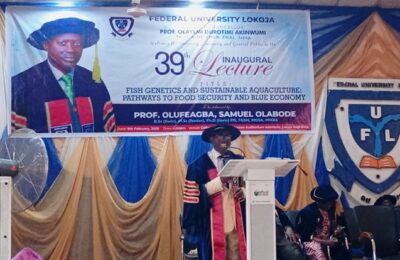Across the fertile plains of Kogi East, where the River Niger winds like a sacred vein of destiny, the Igala nation sits in the shadow of its former greatness. Once the political axis and moral conscience of the Middle Belt, the Igala people now wrestle with the silence of exclusion and the pain of systemic neglect. The echoes of their past glory clash with the grim realities of today’s political manipulation, economic marginalization, and social decay. As Nigeria redefines its national structure, more than seven unanswered questions about the Igala people’s place in the federation remain unresolved—and one of the loudest among them flows from the oil-bearing soils of Ibaji.
The first and most piercing question is both economic and moral: Why are the Egbira people, from Kogi Central, chairing and controlling the oil bloc discovered in Ibaji, Kogi East, while the Igala landowners remain sidelined? This is a paradox that mocks equity and ridicules justice. Crude oil was confirmed in commercial quantity in Ibaji—an Igala territory—but the administrative headquarters and control structures are anchored in Okene, an Egbira domain. How can the host community watch its own natural wealth extracted, managed, and monetized by political outsiders? The arrangement is a political robbery disguised as governance, an open wound on the conscience of Kogi State and a national embarrassment to Nigeria’s federal character principle.
The second question flows directly from this betrayal: Why has the Igala political elite remained largely silent in the face of this economic hijack? The leaders who should be the custodians of justice have chosen comfort over confrontation. Their silence is deafening. Rather than demand rightful ownership and participation for the Ibaji people, some have opted for political patronage—trading the dignity of a nation for crumbs of relevance. The oil in Ibaji is not merely a natural resource; it is a symbol of the people’s potential, stolen and relocated under the disguise of administrative convenience.
A third question lingers across the political landscape: Why has the Igala nation, once the majority voice in Kogi, lost its grip on state power and federal visibility? From being the dominant bloc that shaped early Kogi politics, the Igala have been reduced to spectators in a game they once refereed. The power dynamics shifted not because the people lost strength but because internal disunity weakened their collective front. While Egbira leaders built strategic alliances and consolidated power across party lines, Igala elites fractured along personal ambitions, leaving a vacuum now filled by political opportunists.
The fourth question confronts economic development: How long will Kogi East remain Nigeria’s resource basket without reward? Beyond oil, the land is blessed with fertile soil, solid minerals, and human capital, yet none of these has translated into meaningful prosperity. The absence of industries, poor infrastructure, and minimal government investment has condemned generations to poverty. While the oil revenues from Ibaji enrich political elites elsewhere, the host communities endure environmental degradation, unemployment, and hopelessness—a tragic reflection of Nigeria’s skewed federalism.
The fifth question questions morality and identity: Has the Igala nation forgotten the sacred values of unity, courage, and truth that once defined its greatness? The erosion of moral discipline has created room for political manipulation. The once sacred Igala proverbs of truth and integrity— “A man who eats alone dies alone”—have been replaced by the politics of selfishness. The youth, now weary and disillusioned, no longer find inspiration in their leaders but in the deceptive glamour of quick wealth. Cultural identity has been replaced with survival instincts.
The sixth question challenges justice and fairness: Why has Abuja remained indifferent to this internal colonization within Kogi State? Nigeria’s silence on the Ibaji oil injustice raises broader questions about representation, inclusion, and equity. When a region’s wealth is administered by another group while the true owners languish in deprivation, it is not just mismanagement—it is state-sanctioned exploitation. The federal government’s failure to correct this anomaly reinforces the perception that certain groups in Nigeria are born to rule while others are destined to serve.
The final question is both spiritual and prophetic: Will the Igala nation rise again to claim its rightful place in Nigeria’s destiny? True restoration will not come through protests alone, but through moral reawakening and strategic unity. The people must rediscover their shared vision, revive their ancestral dignity, and confront oppression with one voice. The oil in Ibaji is more than crude—it is a divine test of the Igala conscience. If they remain silent, others will continue to feast on their inheritance.
Nigeria cannot preach national equity while permitting such open injustice within its borders. The case of Ibaji’s oil is not merely an economic debate—it is a mirror of Nigeria’s fractured justice system. Until fairness flows as freely as the Niger, and until the Igala rise again to demand dignity over diplomacy, Kogi East will remain a kingdom betrayed by its own silence. The time has come for truth to speak louder than politics—for history will never forgive a people who watched their inheritance flow away in another man’s name.
– Inah Boniface Ocholi writes from Ayah – Igalamela/Odolu LGA, Kogi state.
08152094428 (SMS Only)




